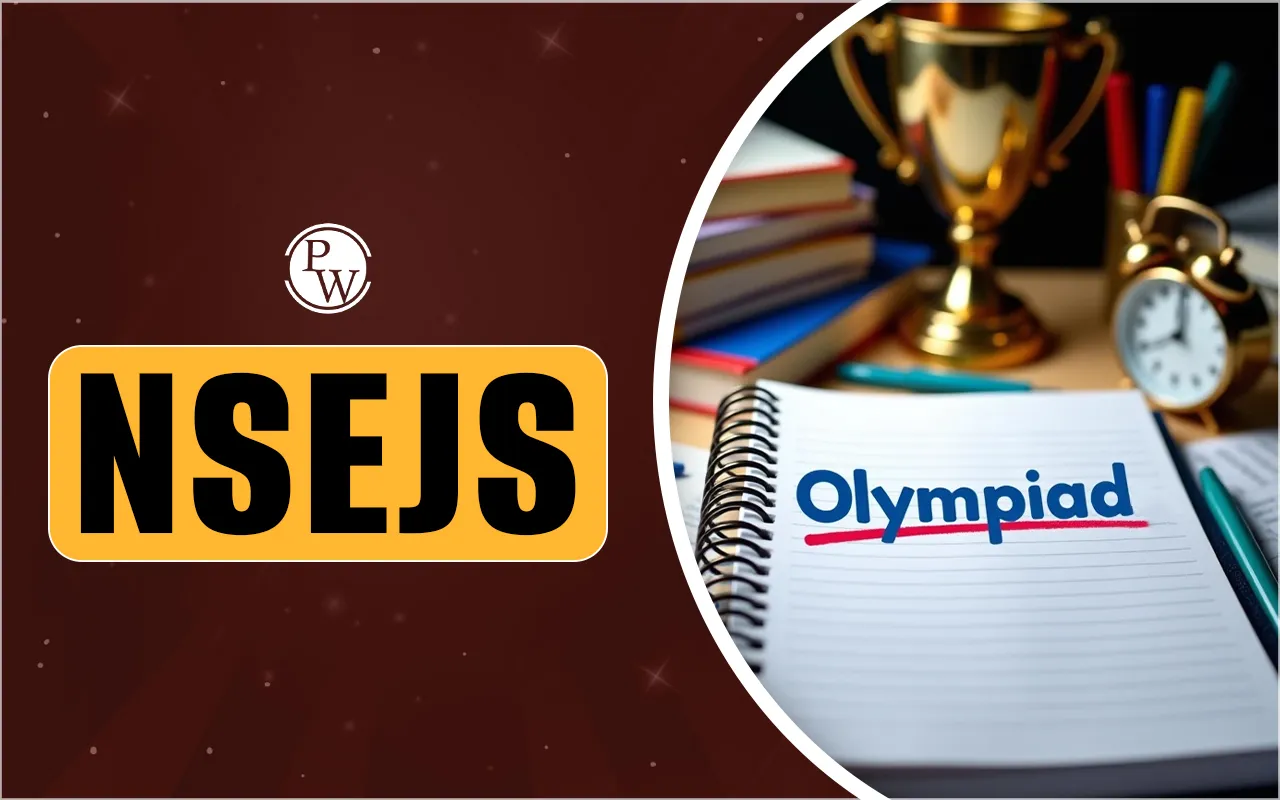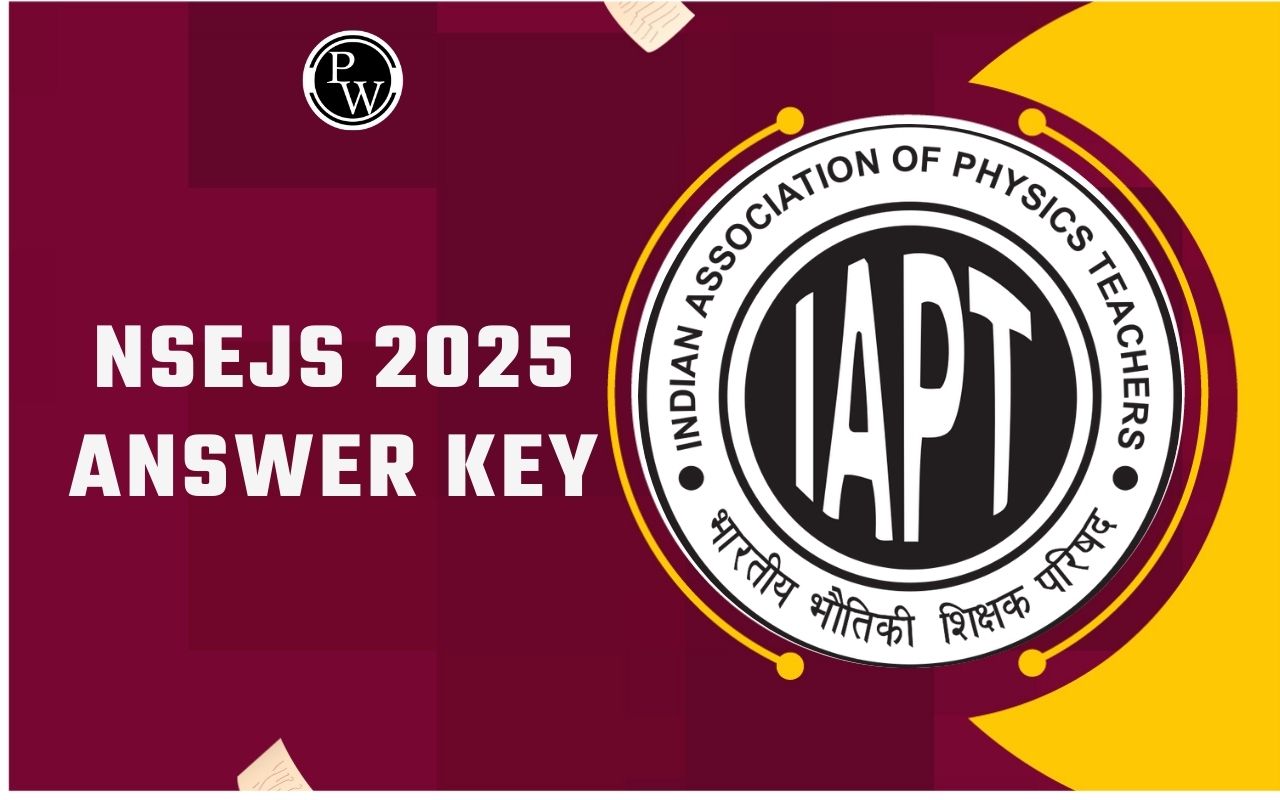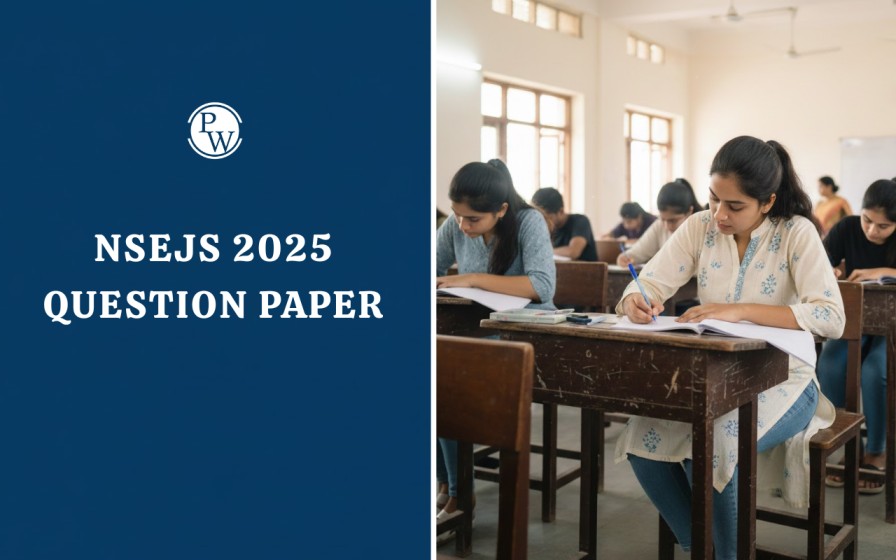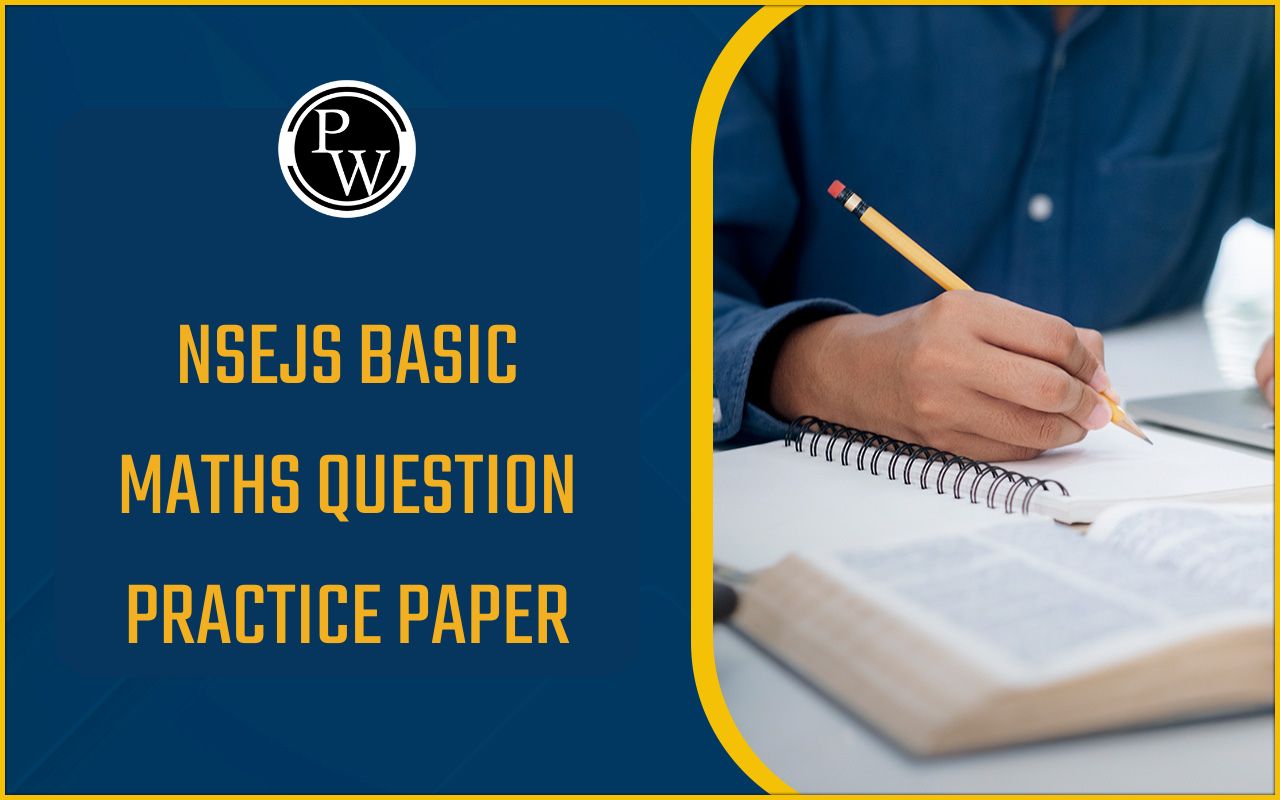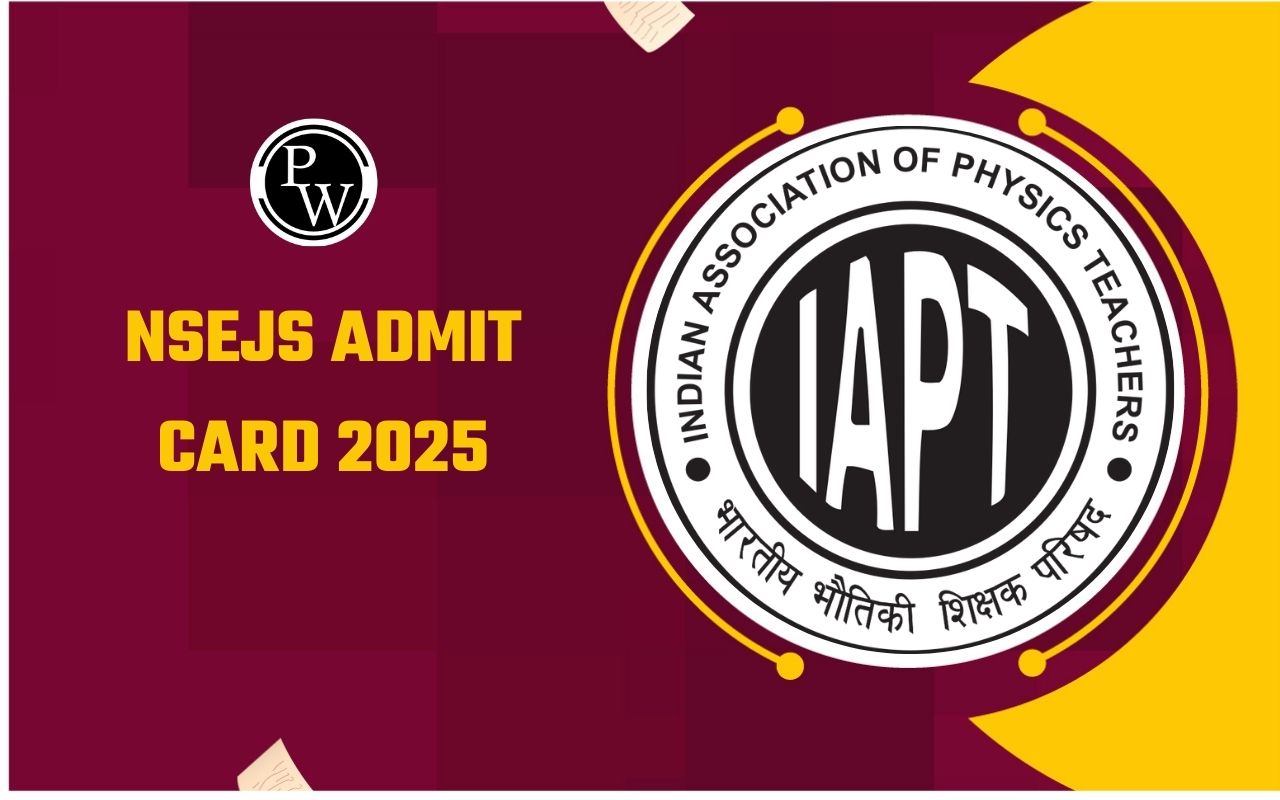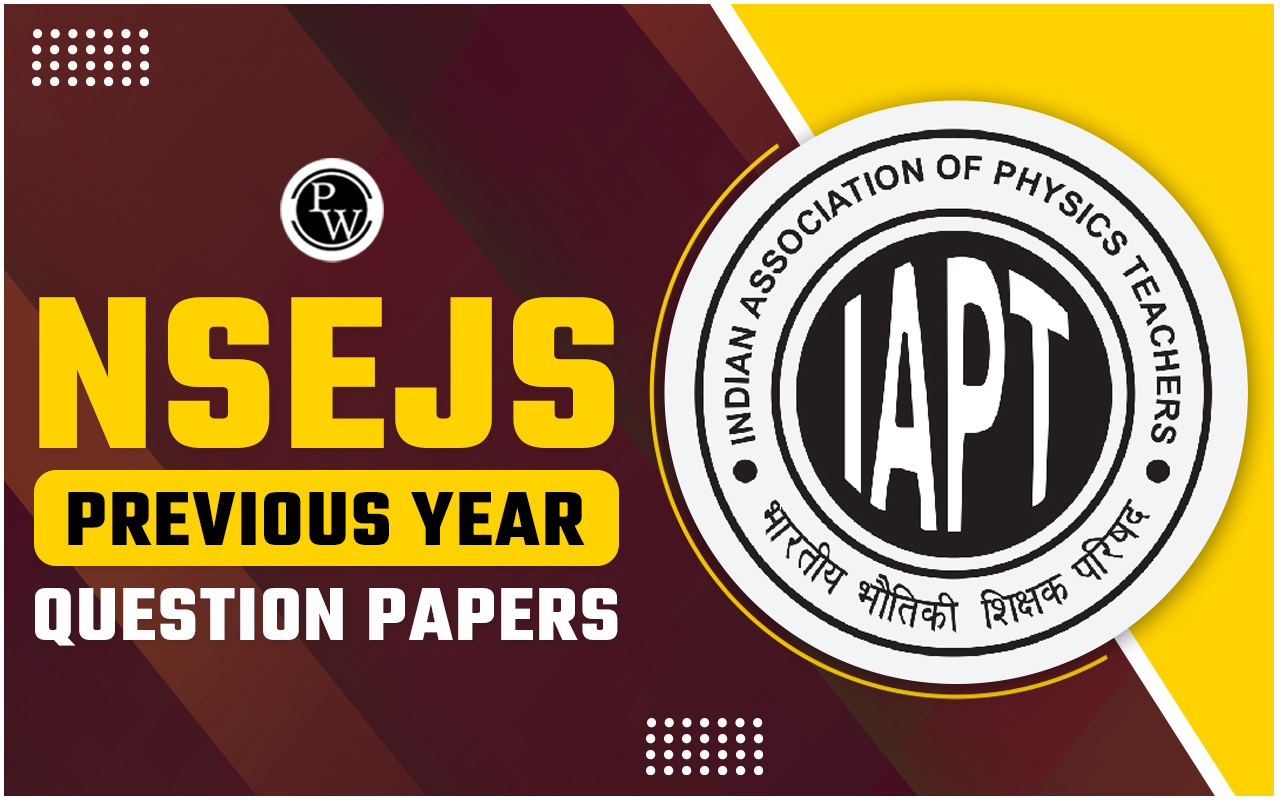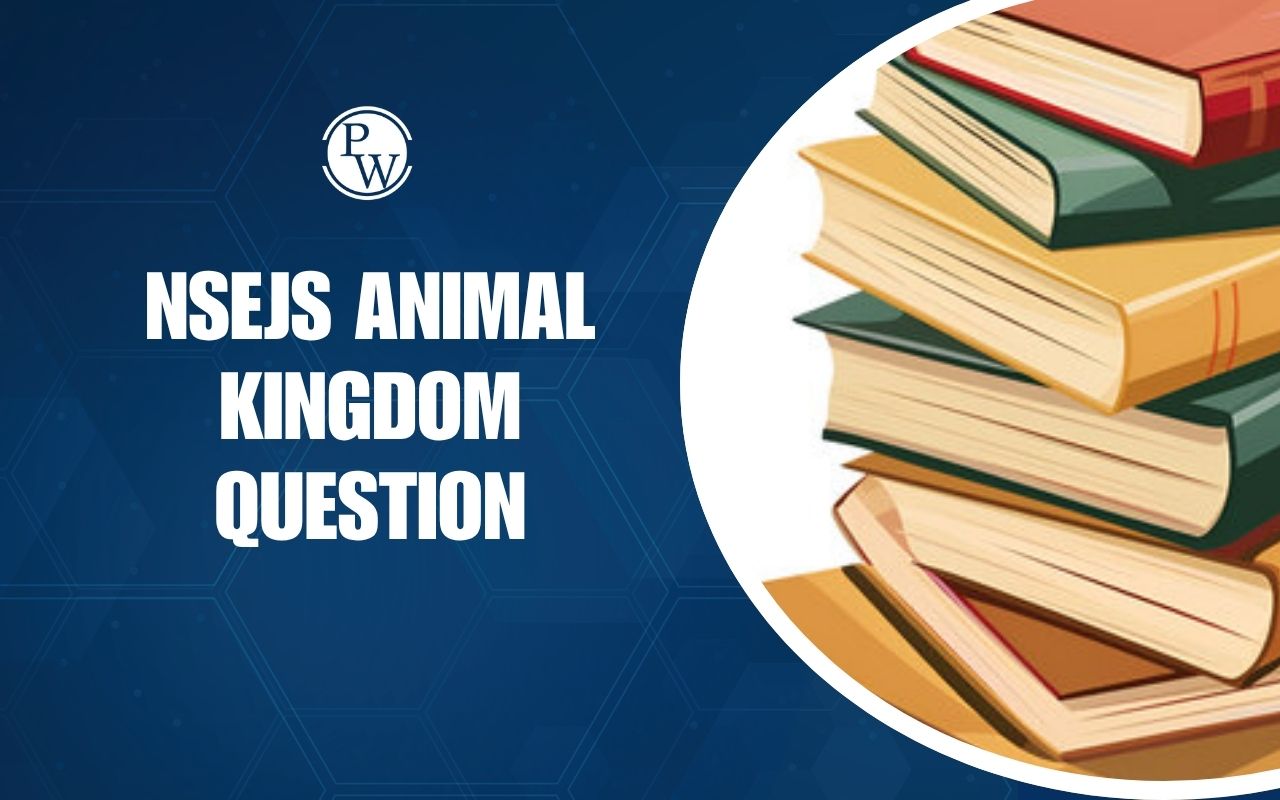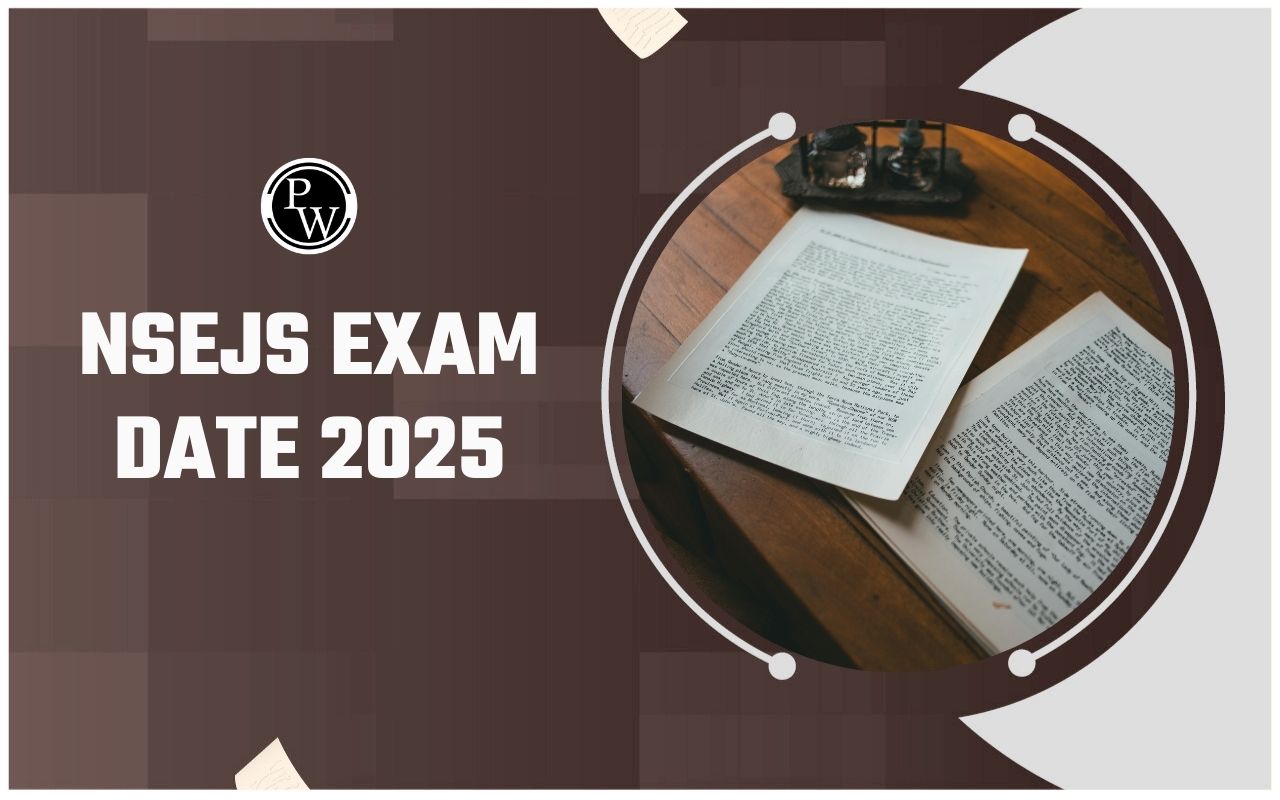
The National Standard Examination in Junior Science (NSEJS) is a prestigious national-level science examination in India, conducted annually by the Indian Association of Physics Teachers (IAPT) in collaboration with the Homi Bhabha Centre for Science Education (HBCSE).
NSEJS serves as the first stage of the selection process for the International Junior Science Olympiad (IJSO), aiming to identify and nurture young scientific talent among students from classes 8, 9, and 10.
Approximately 300 top-performing students from NSEJS are selected to participate in the Indian National Junior Science Olympiad (INJSO) based on merit and state-wise quotas
The NSEJS exam enhances analytical thinking, problem-solving abilities, and a deeper understanding of scientific concepts across Physics, Chemistry, and Biology.
Success in NSEJS strengthens academic profiles, aids preparation for future competitive exams like JEE and NEET, and opens doors to scholarships and mentorship opportunities.
NSEJS Previous Year Question Papers
NSEJS Exam Pattern 2025
The NSEJS Exam consists of multiple-choice questions. Here is a detailed look at the National Standard Examination In Junior Scientific Exam Pattern 2025:
-
Maximum Questions- There will be a total of 60 questions in the test.
-
Maximum Marks- The question paper will be of total 216 marks.
-
Type of Questions- There will only be multiple-choice or objective questions.
-
Duration- The exam will last 2 hours.
-
Part A- 1:
-
48 questions with one correct answer.
-
Each correct answer awards +3 marks.
-
Each incorrect answer incurs a penalty of -1 mark.
-
Part A- 2:
-
12 questions with multiple correct answers.
-
A score of +6 marks is awarded if all correct options are selected without marking any incorrect options.
-
No negative marking applies in this part.
NSEJS Eligibility 2025
-
Must be eligible for an Indian passport.
-
High school students who are studying in class 10 or below and are not expected to clear their 10th board exams by 30th November 2025 are eligible to appear for the NSEJS examination. They can appear as part of their school or on their own.
-
Students must check and verify their eligibility and if found guilty of any unethical conduct that shows that they are not of the required age or qualification, they will be immediately disqualified from the exam.
-
In such cases, even if you pass the first level of the exam, you will be disqualified. Date of birth between 1st January 2010 and 31st December 2011, both dates inclusive.
-
The most important thing to remember here is that the National Standard Junior Science Exam is only for residents of India.
-
In the same year as NSEJS, students cannot appear for any other exams like NSEA (National Standard Examination in Astronomy), NSEB (National Standard Examination in Biology), NSEC (National Standard Examination in Chemistry) or NSEP (National Standard Examination in Physics).
NSEJS Syllabus 2025
Students from various educational backgrounds, including CBSE, ICSE, and state boards, are eligible to take part in the National Standard Examination in Junior Science.
The NSEJS Syllabus is designed for students in Classes 8, 9 and 10 following the NCERT Syllabus. It encompasses a range of topics from Physics, Chemistry, and Biology subjects:
-
Physics: Key topics such as mechanics, thermodynamics, electricity, Electrostatics, Gravitation, etc.
-
Chemistry: Basic inorganic, organic, and physical chemistry concepts.
-
Biology: Cell biology, human physiology, ecology, Biotechnology, Biodiversity, etc.
Books for NSEJS Exam
Several resources and books are recommended to build a strong foundation in the relevant subjects for the NSEJS Olympiad Exam. Here is a summary of the Books for the NSEJS Exam
Physics:
-
Concepts of Physics (Vol. 1 & 2) – H.C. Verma (Essential for concepts and problem-solving)
-
Understanding Physics Series – D.C. Pandey (Arihant) (For problem practice)
-
Fundamentals of Physics – Resnick, Halliday & Walker (For deeper understanding)
-
Irodov’s Problems in General Physics (For advanced problem-solving)
Chemistry:
-
NCERT Chemistry (Class 9 & 10) – Must Read
-
Concise Inorganic Chemistry – J.D. Lee (For inorganic concepts)
-
Physical Chemistry – P. Bahadur (For numerical practice)
-
Organic Chemistry – Morrison & Boyd (For deep understanding)
Biology:
-
NCERT Biology (Class 9 & 10) – Compulsory
-
Trueman’s Elementary Biology (For detailed study)
-
Campbell Biology (For Olympiad-level depth)
Time Management Tips for NSEJS Preparation
By following the below mentioned tips, students can develop an effective time management strategy that enhances your preparation for NSEJS Examination.
-
Prioritize NSEJS Subjects and Topics
-
Identify Weak Areas: Focus on subjects or topics of NSEJS Syllabus that you find challenging. Allocate more time to these while ensuring you also review familiar material to reinforce your understanding.
-
Use a Balanced Approach: Do not spend too much time on any single topic, maintain a balanced study plan to cover all areas effectively.
-
Create a Structured Study Plan
-
Break Down the NSEJS Syllabus: Divide the NSEJS Syllabus which helps in organizing your study sessions and prevents feeling overwhelmed.
-
Set Daily Goals: Establish achievable and clear targets for each study session to maintain focus.
-
Regular Practice and Mock Tests
-
Solve Previous Year Papers: Regularly practice with NSEJS Past Year Papers and NSEJS mock tests to familiarize yourself with the exam pattern and types of questions asked.
-
Schedule Weekly Practice Sessions: Dedicate specific times each week solely for practice to enhance your speed and accuracy.
-
Include Revision Sessions
-
Plan Regular Revisions: Set aside time each week to revisit previously studied topics. This reinforces memory retention and understanding.
-
Use Flashcards and Summary Notes: Create concise notes or flashcards for quick reviews, especially for key concepts and formulas.
-
Energy Mapping: Identify your peak productivity times during the day and schedule challenging tasks during those periods.
-
Minimize Distractions
-
Create a Focused Study Environment: Find a quiet space free from distractions. Turn off notifications on devices during study sessions to maintain focus.
-
Digital Detox: Limit time spent on social media and other non-essential digital activities during your study hours.
Common Mistakes to Avoid During NSEJS Preparation
By being aware of these common mistakes and actively working to avoid them, students can enhance their chances of success in the NSEJS examination. Here are some key mistakes to watch out for:
- Inadequate Preparation: Numerous students underestimate the extent of study necessary. Consistent and complete preparation is important, using notebooks, practice papers, and reference materials to reinforce comprehension.
- Ignoring the NSEJS Syllabus and Exam Pattern: Not becoming familiar with the NSEJS syllabus and exam pattern can create confusion during the examination. Analyzing previous question papers assists in understanding the kinds of questions that may come up.
- Poor Time Management: Students frequently have difficulty with effectively distributing time across various sections. Practicing under timed scenarios can improve speed and accuracy, ensuring every question is attempted.
- Neglecting Basic Concepts: Concentrating too much on complex problems while disregarding basic concepts can result in errors. A solid understanding of the basics is essential for effectively solving advanced problems.
- Skipping NSEJS Mock Tests: Failing to engage in NSEJS Mock Tests can hamper performance evaluation. Mock tests mirror exam conditions, aiding in identifying weak areas and enhancing time management abilities.
- Feeling Nervous During the Exam: Nervousness can result in careless mistakes or missing simple questions. Utilizing relaxation techniques, like deep breathing, can assist in maintaining focus and calmness.
- Misreading Instructions: Not reading instructions carefully can lead to answering incorrectly or overlooking questions entirely. Always take a moment to review the instructions prior to commencing.
- Guessing Without Strategy: Random guessing can be harmful, especially if there is negative marking involved. It’s preferable to apply logical reasoning to eliminate unlikely choices before making an informed guess.
- Lack of Revision Strategy: The lack of a revision strategy in the National Standard Examination in Junior Science (NSEJS) hampers overall performance of students. Develop a structured study plan.
How to Prepare for NSEJS? FAQs
Q1. How to prepare for the NSEJS exam?
Q2. What is the NSEJS Exam?
Q3. Can class 9 students give NSEJS?
Q4. What subjects are included in NSEJS Olympiad?
Q5. What are the common mistakes to be avoided while preparing for the NSEJS Exam?

